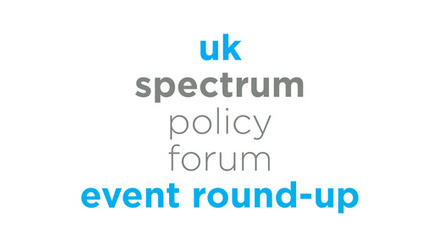Bridging the Layers: The UK’s opportunity in optical wireless communications
The event brought together members of industry, academia and policy to discuss a case to advance optical wireless communications in the UK. Although the focus was on innovations and applications in the space industry, the discussion made clear that the path for optical wireless communications is much broader and could have considerable impact across industries.
The current landscape and potential of optical wireless communications
In the evolving landscape of global connectivity, the convergence of terrestrial, satellite, and underwater communications is opening up a new frontier—one where optical wireless technologies play a central role. These technologies offer a pathway to seamless, high-speed communication across all layers of our digital infrastructure. For the UK, this represents not just a technical challenge, but a strategic opportunity to lead.
Optical wireless communication is no longer a futuristic concept. Around the world, researchers are already demonstrating coherent optical links capable of delivering terabits per second, connecting buildings and infrastructure with unprecedented speed. Yet, despite this progress, we remain decades behind in optical development compared to radio frequency (RF) technologies. While RF has had over 80 years of refinement, optical systems are only beginning to show their full potential.
Optical frequencies are unlicensed and abundant. This opens the door to a range of innovations—from powering devices with solar panels while simultaneously receiving data, to creating resilient multipoint networks where a single point of failure doesn’t bring the system down. Indoors, optical bridges could enable terabit-level wireless connectivity, transforming how we think about 5G and beyond.
Scaling up Optical Wireless Communications
In space, optical communications are becoming essential for LEO satellite constellations, enabling high-throughput inter-satellite and feeder links. These systems offer natural resilience, though they come with their own set of vulnerabilities. Still, the market is growing rapidly—by some estimates, at a rate of 30–40% annually. The UK has a chance to carve out a leadership position, especially by focusing on growing Technology Readiness Level (TRL) innovations that can be scaled with the right support.
But scaling is not easy. One of the biggest hurdles is access to infrastructure. Ground stations are critical for testing capabilities, yet many UK innovators lack access to satellites or testbeds. The government could play a pivotal role here, not just as a funder, but as an early adopter and strategic investor, particularly in areas like quantum-secure communications.
The UK must develop a compelling case for government support—one that ties innovation to economic growth and national capability. This includes creating a vision that excites stakeholders, being clear about the risk and required investment. A clear funding structure that supports continuity, rather than short-term cycles, would go a long way in encouraging long-term innovation.
There is also a need to think strategically about interoperability. Off-the-shelf transceivers and modems can be repurposed to build modular systems, reducing costs and accelerating deployment in different use cases. But to do this effectively, we need a national strategy that aligns technical development with market needs.
Bringing stakeholders together is crucial
Industry and academia must articulate the strategic advantages, from export potential to national resilience. Half of the global market is already moving forward. If the UK wants to keep pace, it must act now.
For SMEs, the barriers to entry remain high. We need to identify which products are most viable and support their development through targeted funding and venture capital. But the UK’s financial ecosystem is not the same as in other countries. That’s why a top-down vision is so important. Without it, venture capital and other institutional investors will continue to chase return metrics rather than buy into missions.
A concrete taskforce, perhaps in collaboration with stakeholder groups and a direct link to Government decision-makers, could help shape a national strategy. This should feed into the current spending review and align with broader UK ambitions in space, quantum, and photonics.
The opportunity is real. The question is whether we can seize it.
Telecoms Programme activities
techUK brings together government, the regulator, telecom companies and stakeholders to help the UK maximise the benefits of adopting advanced communications services. We ensure our members have a clear understanding of market developments, customer requirements, and government priorities. Visit the programme page here.
Upcoming events
Latest news and insights
Learn more and get involved
Telecoms updates
Sign-up to get the latest updates and opportunities from our Communications Infrastructure and Services programme.
Meet the team
Tales Gaspar
Programme Manager, UK SPF and Satellite, techUK
Tales has a background in law and economics, with previous experience in the regulation of new technologies and infrastructure.
In the UK and Europe, he offered consultancy on intellectual property rights of cellular and IoT technologies and on the regulatory procedures at the ITU as a Global Fellow at the European Space Policy Institute (ESPI).
Tales has an LL.M in Law and Business by the Getulio Vargas Foundation (FGV) and an MSc in Regulation at the London School of Economics, with a specialization in Government and Law.
- Email:
- [email protected]
- Phone:
- +44 (0) 0207 331 2000
- Website:
- www.techUK.org
- LinkedIn:
- www.linkedin.com/in/talesngaspar
Read lessmore
Sophie Greaves
Associate Director, Digital Infrastructure, techUK
Sophie Greaves is Associate Director for Digital Infrastructure at techUK, overseeing the Telecoms Programme, the Data Centres Programme, and the UK Spectrum Policy Forum.
Sophie leads our work across telecoms networks, security and resilience, supply chain diversification, advanced communications technologies, spectrum policy, and data centres - bringing these areas together into a dedicated Digital Infrastructure unit. She was previously Head of Telecoms and Spectrum Policy.
Prior to joining techUK, Sophie completed a masters in Film Studies at University College London; her dissertation examined US telecoms policy relating to net neutrality and content distribution.
- Email:
- [email protected]
- Phone:
- 0207 331 2038
- LinkedIn:
- https://www.linkedin.com/in/sophiegreaves/,https://www.linkedin.com/in/sophiegreaves/
Read lessmore
Josh Turpin
Programme Manager, Telecoms and Net Zero, techUK
Josh joined techUK as a Programme Manager for Telecoms and Net Zero in August 2024.
In this role, working jointly across the techUK Telecoms and Climate Programmes, Josh is responsible for leading on telecoms infrastructure deployment and uptake and supporting innovation opportunities, as well as looking at how the tech sector can be further utilised in the UK’s decarbonisation efforts.
Prior to joining techUK, Josh’s background was in public affairs and communications, working for organisations across a diverse portfolio of sectors including defence, telecoms and infrastructure; aiding clients through stakeholder engagement, crisis communications, media outreach as well as secretariat duties.
Outside of work, Josh has a keen interest in music, painting and sailing.
- Email:
- [email protected]
- Phone:
- 020 7331 2038
- LinkedIn:
- https://www.linkedin.com/in/josh-turpin/
Read lessmore

















